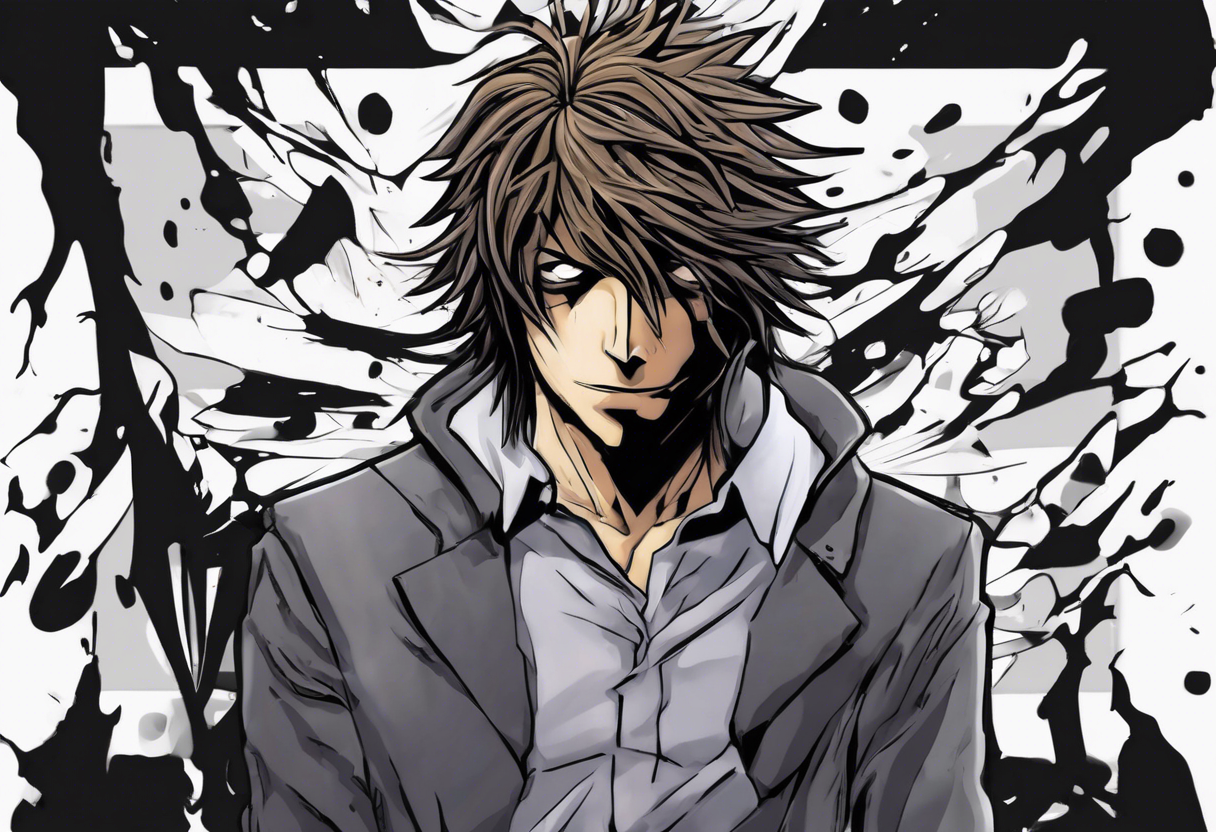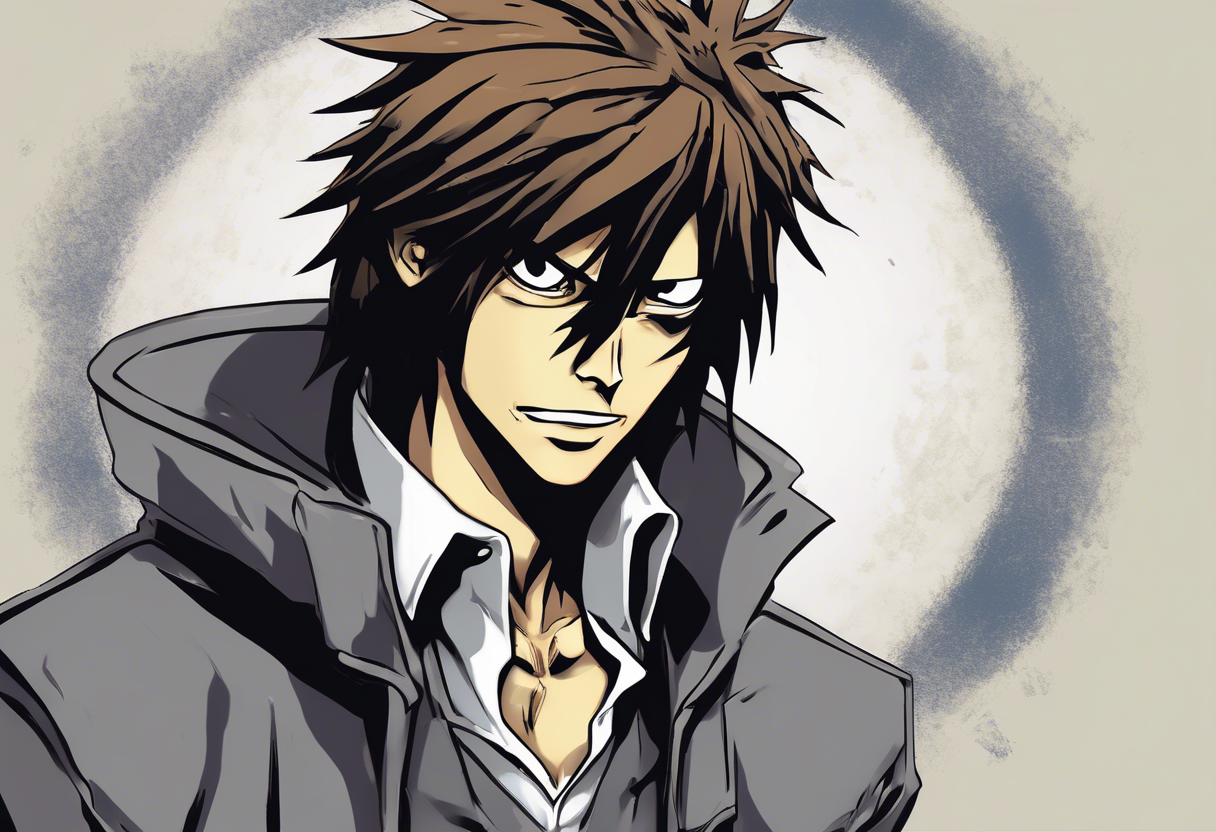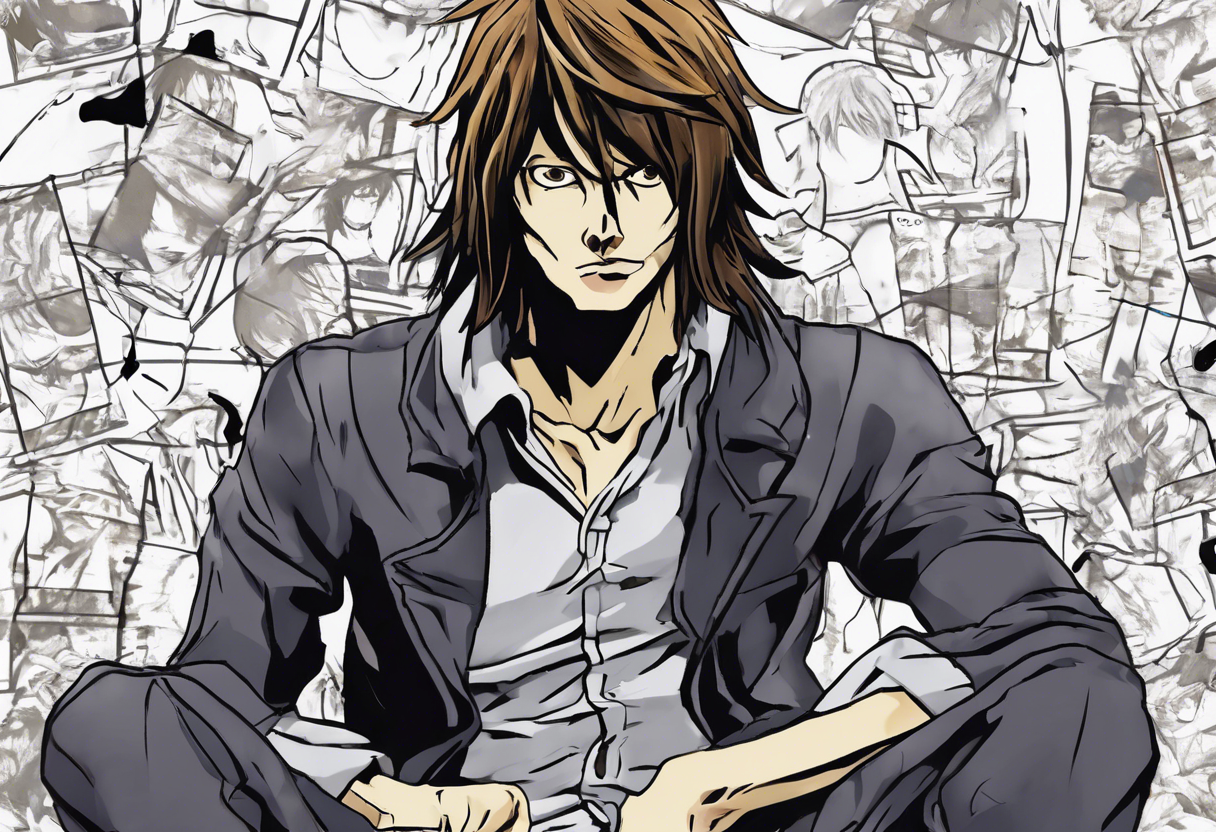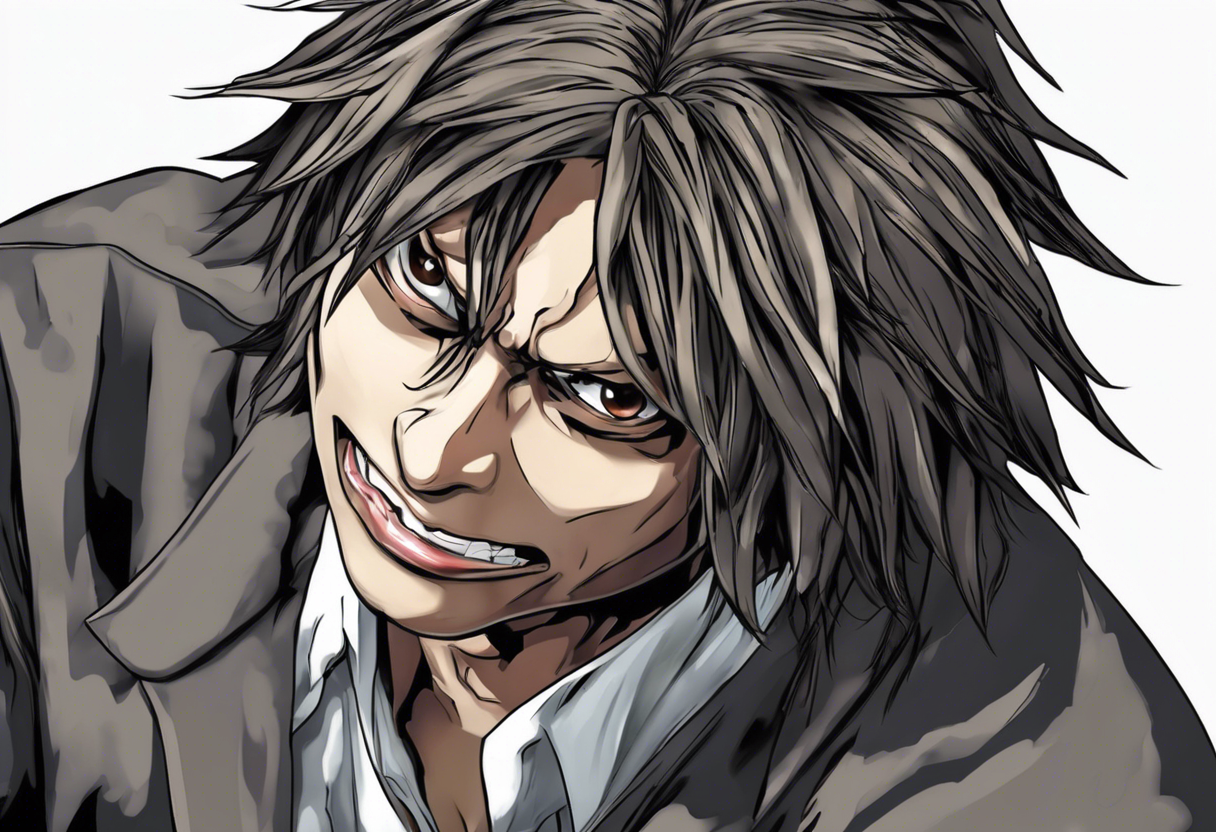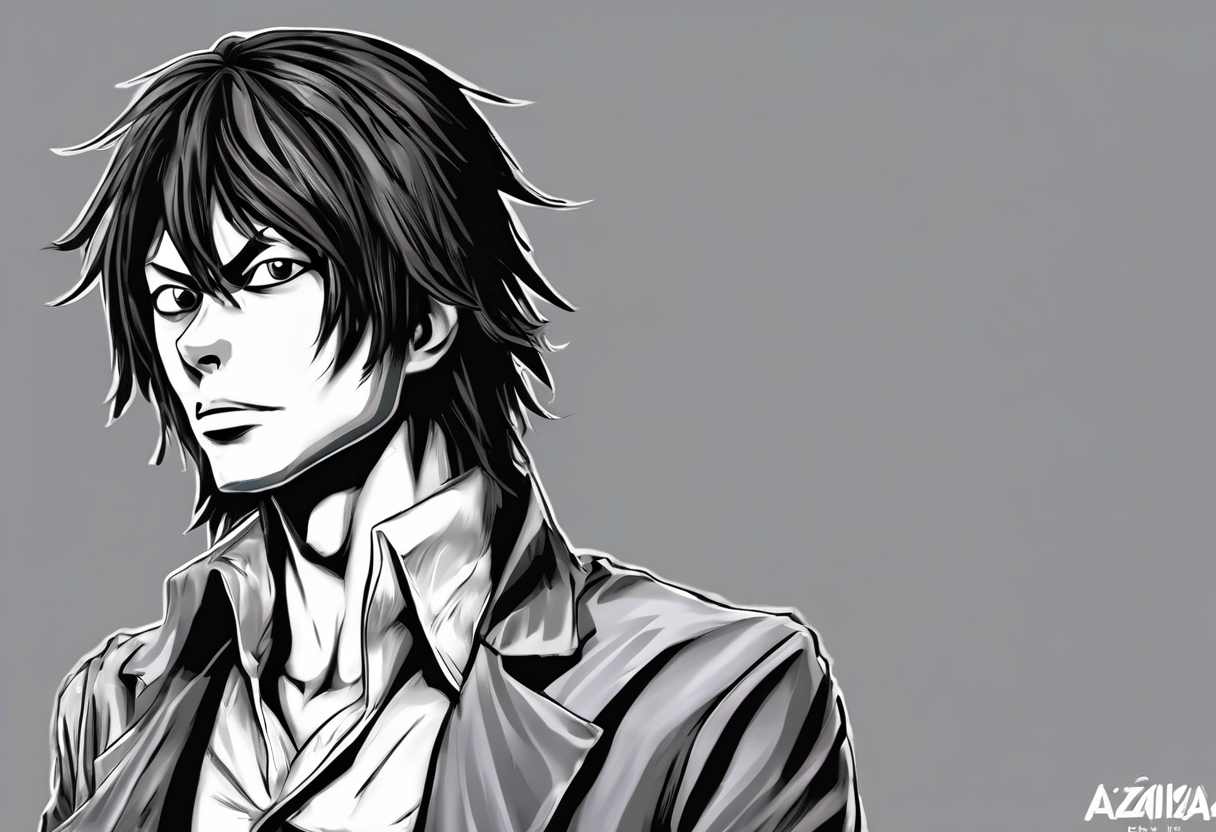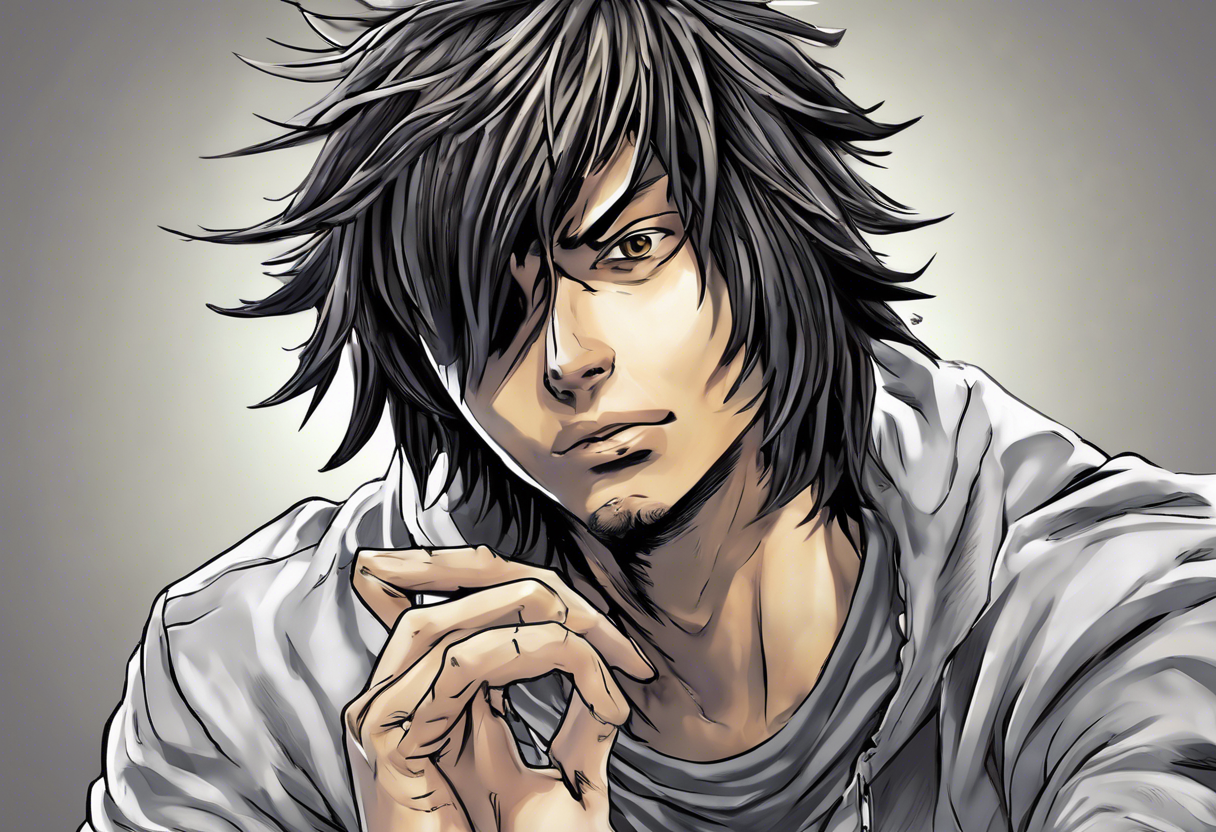Contents
Aizawa: The Complex and Nuanced Character of Death Note
Introduction
Aizawa, a pivotal character in the anime and manga series Death Note, was created by Tsugumi Ohba and illustrated by Takeshi Obata. He is a member of the Japanese Task Force (JTF) dedicated to capturing the serial killer known as Kira. Aizawa’s character is defined by his grounded realism, his role as a "Doubting Thomas" within the team, and his deep personal connections that drive his actions throughout the narrative.
Aizawa’s significance in Death Note lies in his humanizing presence amidst the supernatural and intellectual battles between Light Yagami (Kira) and L. His character serves as a bridge between the personal and professional aspects of the investigation, highlighting the emotional toll and moral dilemmas faced by those involved. Aizawa’s storyline is intricately woven with themes of loyalty, family, and the sacrifices one must make for justice, resonating with audiences on a deeper level.
Role in the Story
Aizawa’s journey in Death Note is marked by several key events that shape his character and the overall plot. One of the most significant moments is the death of Ukita, a friend and coworker, which Aizawa and L witness on television. This event profoundly affects Aizawa, who feels a deep sense of failure and responsibility for not being able to protect Ukita [1][2].
As the investigation into Kira continues, Aizawa finds himself at the center of a critical decision when the main force pulls support from the secret operation due to threats from Kira. This leads to a situation where any officers who wish to continue working with L will have to leave their jobs. Aizawa, being a married man with two children, is particularly torn by this choice. His family life is already strained due to his extensive involvement in the case, and the prospect of losing his job adds to his dilemma [1][2].
L, aware of Aizawa’s personal circumstances, does not attempt to convince him to stay. Instead, L allows Aizawa to make his own decision, which ultimately leads to Aizawa’s departure from the task force. This decision is not just a personal choice but also a test of loyalty and dedication, as L had planned for this outcome and had even set aside funds for the officers and their families in case they lost their jobs [1][2].
Aizawa’s relationships with other characters are also crucial to his storyline. His interactions with L reveal a complex dynamic where L respects Aizawa’s dedication but also understands the importance of his family. L’s farewell to Aizawa, where he expresses his liking and appreciation for him, underscores the emotional depth of their relationship [1][2].
Character Analysis
Aizawa’s personality is characterized by his realism and practicality. He is often the voice of reason within the task force, questioning the methods and motivations of those around him. His grounded nature makes him a relatable character, especially when contrasted with the more eccentric and intellectual personas of L and Light.
Aizawa’s motivations are deeply rooted in his family and his sense of responsibility. He is torn between his duty to justice and his duty to his family, a conflict that makes him more human and accessible to audiences. This internal struggle highlights his strengths, such as his loyalty and commitment, as well as his flaws, including his tendency to make hasty decisions under emotional stress [1][2].
Throughout the series, Aizawa undergoes significant development. His initial confidence and determination are gradually eroded by the personal costs of the investigation. His departure from the task force and subsequent realization of L’s care for him lead to a profound emotional breakdown, showcasing his vulnerability and the depth of his emotional investment in the case [1][2].
Themes and Symbolism
Aizawa embodies several key themes in Death Note, including the importance of family, the sacrifices required for justice, and the personal costs of dedication. His character serves as a counterpoint to the more abstract and philosophical themes explored through L and Light, grounding the narrative in real-world emotional and moral dilemmas.
The theme of family is particularly significant in Aizawa’s storyline. His decision to leave the task force is driven by his need to protect and provide for his family, highlighting the human aspect of the characters involved in the investigation. This theme is further emphasized by the introduction of Aizawa’s family shortly after his departure, underscoring the pivotal role they play in his life [1][2].
Aizawa’s character also symbolizes the concept of loyalty and dedication. His struggle to balance his professional and personal life reflects the broader theme of how personal sacrifices are often necessary in the pursuit of justice. This is mirrored in the Christian allusions present in the series, where L’s demand for total dedication from his team members parallels Christ’s demands from his disciples [2].
Cultural Impact
Aizawa’s character has had a significant impact on fans of Death Note. His relatable struggles and emotional depth have made him a favorite among audiences, who appreciate the humanizing element he brings to the story. In adaptations and spin-offs, Aizawa’s role remains consistent, highlighting his importance in the narrative.
The cultural significance of Aizawa extends beyond the series itself. He represents a common dilemma faced by many in real life—balancing personal and professional responsibilities. This resonance has contributed to the enduring popularity of Death Note, making it a cultural phenomenon that continues to captivate audiences worldwide [3].
Critical Reception
Critics and audiences have praised Aizawa’s character for his complexity and nuance. His emotional journey and the moral dilemmas he faces have been highlighted as some of the most compelling aspects of the series. The way his character is woven into the larger narrative has been praised for adding depth and realism to the story.
However, some interpretations have varied, with some viewers seeing Aizawa’s departure as a sign of weakness or lack of faith in L’s abilities. Despite these differing views, Aizawa’s character remains widely appreciated for its emotional authenticity and the significant role it plays in the narrative [1][2].
Legacy
Aizawa’s enduring appeal lies in his relatability and the universal themes he represents. His character has inspired other works and character archetypes by highlighting the importance of human emotions and personal sacrifices in narratives. The complexity of his character continues to be a topic of discussion, reflecting the series’ ability to engage audiences on multiple levels.
In contemporary discussions, Aizawa’s character remains relevant as a symbol of the human cost of pursuing justice and the importance of family. His storyline serves as a reminder that even in the most extraordinary circumstances, personal relationships and emotional well-being are crucial aspects of any narrative.

